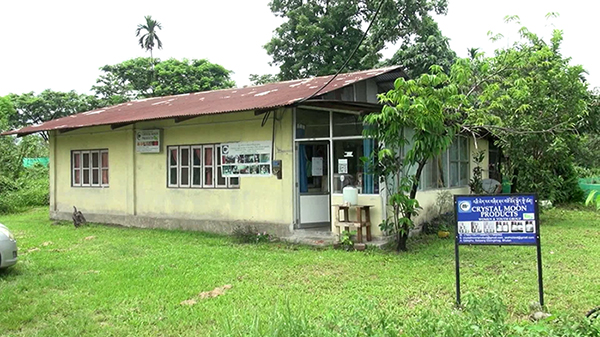 The COVID-19 pandemic has forced companies- both small and large to relieve their employees. Just recently, Mountain Hazelnuts, one of the biggest private companies in the country, laid off more than half of its employees for up to three months as a temporary measure to sustain the company. In Gelegphu as well, Crystal Moon Product, a small scale food processing unit laid off most of its employees.
The COVID-19 pandemic has forced companies- both small and large to relieve their employees. Just recently, Mountain Hazelnuts, one of the biggest private companies in the country, laid off more than half of its employees for up to three months as a temporary measure to sustain the company. In Gelegphu as well, Crystal Moon Product, a small scale food processing unit laid off most of its employees.
50-year-old Chimi Dema set up a small scale food processing unit in Gelegphu in 2016 to provide gainful employment to divorced women, housewives and youth.
“I derived satisfaction knowing that the company could create job opportunities for youth especially children of divorced parents and women who are victims of domestic violence,” said Chimi.
She initially employed 15 women. Today, the company employs only four of them.
“We could come and work here at the unit and earn some cash to support my husband and family instead of staying idle at home,” said Sonam Choden, who works at the unit.
“We just waste our time staying at home. So we work at the unit. Although the amount may be small, it helps in meeting our children’s expenses,” added Daman Tiwari.
Today, amid the COVID-19 pandemic, she had to lay off most of her employees so she can keep the business afloat. She claims it is also to avoid crowding at the unit to prevent the workers from contracting the virus.
Chimi says, without any tourists in the country currently, there’s no market for her produce. The small scale food processing unit produces ginger powder, honey, bamboo shoots, fruit juice, sauce and candies using locally available raw materials from Tsirang, Zhemgang, Wamrong and Sarpang. Not many Bhutanese are keen on buying her produce as the price of similar products imported from the neighbouring countries are comparatively cheaper.
“We don’t have a market to sell our produce. We had to stop making candies. And when it comes to ezay and pickles, the ones imported from Darjeeling are cheaper compared to the price of our products. We cannot compete with the imported products in the market because for us the cost of raw materials is expensive. Moreover, we have to import the packaging materials too and this adds to increased cost of finished products.”
Before the pandemic hit the country, One Gewog One Product (OGOP), the Queen’s project supported in marketing the produce to the tourists.
Currently, the small scale unit operates manually in a rented apartment. Chimi plans to relocate the unit to the new industrial service centre at Jimiling where the government has allotted a plot for the unit.
Karma Wangdi, Gelegphu





